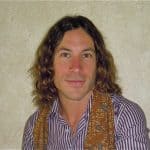For years, genealogists have looked to genes as the be-all and end-all in the fight against cancer. They are, however, only one piece of a highly complex puzzle. Recent research shows that genes must be activated by concrete causes; they are not mystical beings that control our health destinies by themselves.
Genes are thus something for genealogists to seriously consider, not for the rest of us to grow worried about. Anxiety over our genetic heritages will not help us beat cancer. Let us instead look at the underlying causes of cancer, and replace gene mania with simple yet powerful lifestyle changes. In this regard, the following points are worth pondering—and putting into practice.
Self-determination is more powerful than any therapy.
Drs. Bernie Siegel, Cathirose Petrone, Katharina Johnson, and many others have found that positive belief is more powerful than any type of cancer therapy in terms of beating cancer. It is becoming clear that the Western matter-over-mind approach is neither the only approach nor the best one.
Related Article: Lifestyle Tips to Avoid Getting Cancer
More and more of us are starting to realize that we must take charge of our own health. Taking responsibility for our internal and external environments reaps sustainable benefits. The more knowledge we have about our bodies and their environments, the more confidence we will have to place our health in our own hands.
Overall health & well-being is more important than genes in cancer development.
Researchers are spreading the word: cell environments actually determine which genes get activated and which get silenced. These environments depend on a number of factors, including oxygen, nutrients, toxins—and psychological beliefs.
Max Gerson, the father of organic homeopathic therapy, understood that in a sense, we all have cancer: we all have abnormal cells that can potentially spiral out of control. Gerson found that cancers and other chronic conditions develop when our organs lose immunity, so he sought to permanently restore the organs so that cancerous cells in them died before taking proper root. They die because the cell environments are made exclusively fit for health conditions that prohibit any malignant possibilities.
Related Article: 37 Superfoods to Start Eating Today
Healthful awareness will eventually create cancer-free families and communities.
The term “cancer” actually refers to over 150 particular diseases that are constantly increasing in number and source. Nullifying particular cancer genes will not guarantee cancer prevention, because genealogy cannot affect the growing number of malignant matter in and out of our bodies. Genetic modifications cannot influence how our bodies will react to our increasing and evolving environmental challenges.
We should focus on increasing awareness along with reducing stress, making better food choices, and eliminating useless chemicals.
Related Article: Fight Stress with Mini-Meditations, Affirmations & Visualization
The Takeaway
Cancer will soon affect one in every two Westerners. Those of us who do not have cancer lurking in our family trees will very soon, and doubtless more than one kind. The solution lies not in disease wars and gene obsession, but in self-determination and overall health & well-being. Only when we seek to improve our personal environments and replace anxiety with a positive outlook will we reach the next level in the ongoing fight against cancer.
***************************
 Brannon Gerling is a philosophy professor and international writer and lecturer from New Jersey, USA. Currently living in Bali, he writes on various topics in sustainable health, economics, environment, and culture. All of his writings are essentially philosophical and integrative scientific.
Brannon Gerling is a philosophy professor and international writer and lecturer from New Jersey, USA. Currently living in Bali, he writes on various topics in sustainable health, economics, environment, and culture. All of his writings are essentially philosophical and integrative scientific.
Featured photo by AJ Batac

